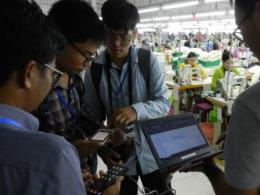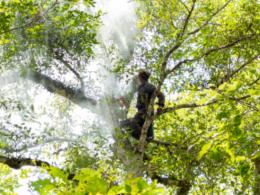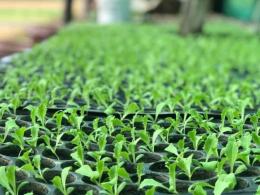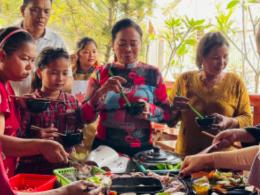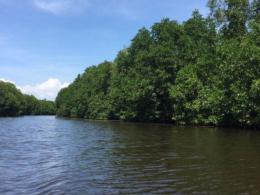Climate-Resilient Rural Infrastructure in Kampong Cham Province under Rural Roads Improvement Project II
Background
Cambodia is one of the countries in the world most vulnerable to climate change impacts. As part of its response to climate change, the Royal Government of Cambodia, in collaboration with its development partners, is implementing the Strategic Program for Climate Resilience (SPCR) with financial support from the Climate Investment Funds. The SPCR emphasizes two streams to promote climate resilience. The first stream is to build knowledge about climate change impacts on Cambodia and how to mainstream climate resilience into agriculture, water resources and transport and urban infrastructure. The second stream is to invest in applying new skills, techniques, technology, and engineering practices for climate resilience.
Overall Objective
Safe, climate-resilient, and cost- effective road network that provides all-year-round access
Expected Results
- Rural roads improved to climate-resilient condition;
- Rural road asset management improved;
- Rural road safety and awareness program enhanced;
- Connectivity improved for Mekong River islands
Location
Kampong Cham, Tbong Khmum, Takéo, Kampong Speu, Kampong Chhnang, Pursat, Battambang, Banteay Mean Chey, Siem Reap, and Kampong Thom
Beneficiaries
100,000 people of which 51,000 are women and girls
Approach
- Rehabilitation of roads and jetties to climate-resilient condition
- Incorporation of climate risks in policies and operations
- Preparation of hazard maps to guide rural road maintenance operations
- Preparation of guidance manuals for incorporating climate resilience in road planning, design, and maintenance
- Training in climate change adaptation strategies for rural infrastructure
- Development of a community-based emergency management system
- Development of a framework for climate change adaptation
- Other activities: assessment of feasibility of establishing a rainwater drainage canal system; pilot-testing of micro-irrigation systems and solar pumping systems; assessment of renewable energy potential; installation of solar lighting systems; and conduct of training in community-based tourism, entrepreneurship, and small business development


